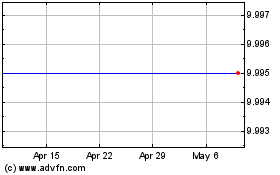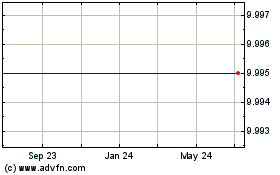UPDATE: US Names Apollo Group, Corinthian, Kaplan In For-Profit Probe
August 04 2010 - 11:58AM
Dow Jones News
Colleges operated by Apollo Group Inc. (APOL), Corinthian
Colleges Inc. (COCO) and Washington Post Co.'s (WPO) Kaplan Higher
Education unit were among the schools the U.S. Government
Accountability Office found provided "deceptive and otherwise
questionable information" to agents who posed as prospective
students in an undercover investigation of for-profit student
recruitment tactics.
Gregory Kutz, managing director of forensic audits and special
investigations at the GAO, produced details of the report at a
hearing of the Senate Health, Education, Labor and Pensions
Committee Wednesday. A version of the report, excluding school
names, was released Tuesday, though analysts had speculated Apollo,
Corinthian and Kaplan may be implicated.
A Kaplan spokesman said in an emailed statement the company had
initiated investigations at the two schools named by the GAO
"immediately upon learning of the incidents" and has suspended
enrollment at its Pembroke Pines, Fla., campus. Investigations at
that campus and the Riverside, Calif., campus continue. The
spokesman said Kaplan "will take all necessary actions" against
employees violating the company's standards and code of
conduct.
Representatives from Apollo and Corinthian weren't immediately
available for comment.
Recruiters from four non-publicly traded schools also encouraged
applicants to falsify information on federal financial aid
application forms, recommending they commit fraud so the students,
and ultimately the schools, could receive more federal aid dollars.
Many for-profit schools derive upwards of 80% of revenue from
federal loans and grants.
The publicly traded schools, meanwhile, misrepresented
graduates' potential income and job placement rates and provided
misleading information on tuition and fees.
Kutz was testifying at the second in a series of hearings on
for-profit education, which Sen. Tom Harkin (D., Iowa), has framed
in the context of providing transparency on where taxpayer dollars
are going. For-profit schools enroll less than 10% of college
students but capture nearly a quarter of federal financial aid
dollars. The U.S. Department of Education earlier this summer
proposed new regulations on how recruiters are paid, among other
rules to ensure students are benefiting at the for-profit
institutions.
"The GAO's findings ... make it disturbingly clear that abuses
in for-profit recruiting are not limited to a few rogue recruiters
or even a few schools with lax oversight," said Harkin, chairman of
the committee. "To the contrary, the evidence points to a problem
that is systemic to the for-profit industry."
The Career College Association, a trade group, announced late
Tuesday in response to the GAO's findings that it would enhance its
top-down compliance training programs and institute a "mystery
shopper" program immediately in the hopes of heading off some
criticism.
"Even if the problems cited in the GAO report are limited to a
few individuals at a few institutions, we can have zero tolerance
for bad behavior," President and Chief Executive Harris Miller said
in a statement. "We will continue to add to this 'zero tolerance'
program until all such doubts about our sector are removed."
Shares of Corinthian Colleges were recently trading up 1.5% to
$8.87 after falling to a 52-week low of $8.26 when the GAO first
fingered the company. Apollo shares were up 1.07% to $45.29, while
Washington Post was off 0.7% to $425.00.
-By Melissa Korn, Dow Jones Newswires; 212-416-2271;
melissa.korn@dowjones.com
Apollo Education Group, Inc. (NASDAQ:APOL)
Historical Stock Chart
From Jun 2024 to Jul 2024

Apollo Education Group, Inc. (NASDAQ:APOL)
Historical Stock Chart
From Jul 2023 to Jul 2024
